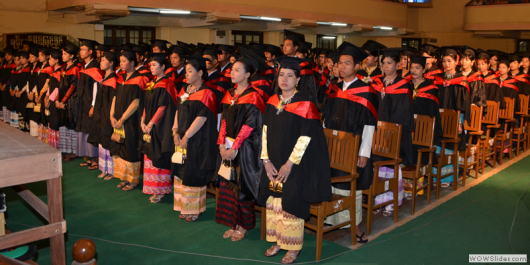Education in Myanmar
 Since the start of last year, the government of Myanmar has taken significant strides in reforming its education system, particularly the tertiary-level schools.
Since the start of last year, the government of Myanmar has taken significant strides in reforming its education system, particularly the tertiary-level schools.
For decades, Myanmar was under military dictatorship. During these times, the military government spent only 1.3 percent of its entire spending on education. Today, the government spends a significant amount more. For instance, during the fiscal year of 2012-2013, the government of Myanmar spent nearly 11 percent of their total spending of $7.13 billion on education. There have been noticeable changes in the government and prioritizing education has been among them.
One of the biggest changes has been the reopening of Yangon University. For 20 years, the Yangon University in Myanmar had been closed off to undergraduate students because the government has discouraged higher education. However, in 2014, the University was reopened to students. A young group of 1,000 new undergraduates have been selected to attend.
This is a historic, significant move made by the government of Myanmar for several reasons:
- Myanmar can rebuild the damaged reputation of their tertiary leveled schools. A tertiary leveled school refers to institutions of higher education, while primary and secondary school refers to elementary and middle schools. For decades, Myanmar was under the ruling military junta.
- Myanmar has the opportunity to engage in higher education with the rest of the world. Already, many significant partnerships have been established through the Ministry of Education. From Asia, Thailand’s Thepsatri Rajabhat University and several South Korean universities have offered partnerships. Even from the West, prestigious universities such as Johns Hopkins have also created partnerships. However, one of the more significant investments has been through the Japan International Cooperation, where seven Japanese universities are partnering with a initiative that has cost $13.5 million dollars to work with universities to update and expand engineering knowledge in Myanmar.
These could be seen as business opportunities for those schools who have pushed for education. However, there are many benefits for Yangon University to be affiliated with different universities.
- The university curriculum will not be completely in military control. The students (and future generations) will have space to create their own thoughts. Through the partnerships, the Myanmar universities will have to create curriculums together with the their new partners who have different ideas to offer.
- Offering Myanmar students an opportunity to study abroad will expose them to completely different cultures that they never would have imagined while being under tight military laws. Having foreign exchange students visiting Myanmar will also allow for opportunity to exchange ideas and therefore enriching potential discourse.
- Inviting foreign professors to lecture in their halls will further expose them to different perspectives and most importantly, encourage and foster creativity.
- Academic freedom is still limited in Myanmar. Students cannot freely speak, write or publish materials without repercussions. Foreign influence will not only benefit the students but also the administrators who run these institutions.
There are high hopes for Myanmar as their education system continues to develop and become in sync with the rest of the world of higher education, which will ultimately change their culture and society.
– Christina Cho
Sources: University World News, Education Database, Oxford Business Group
Photo: Google Images
